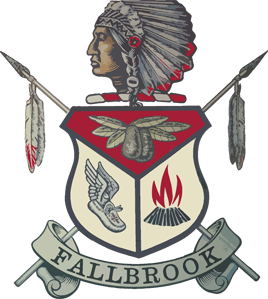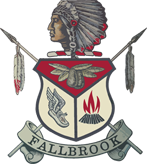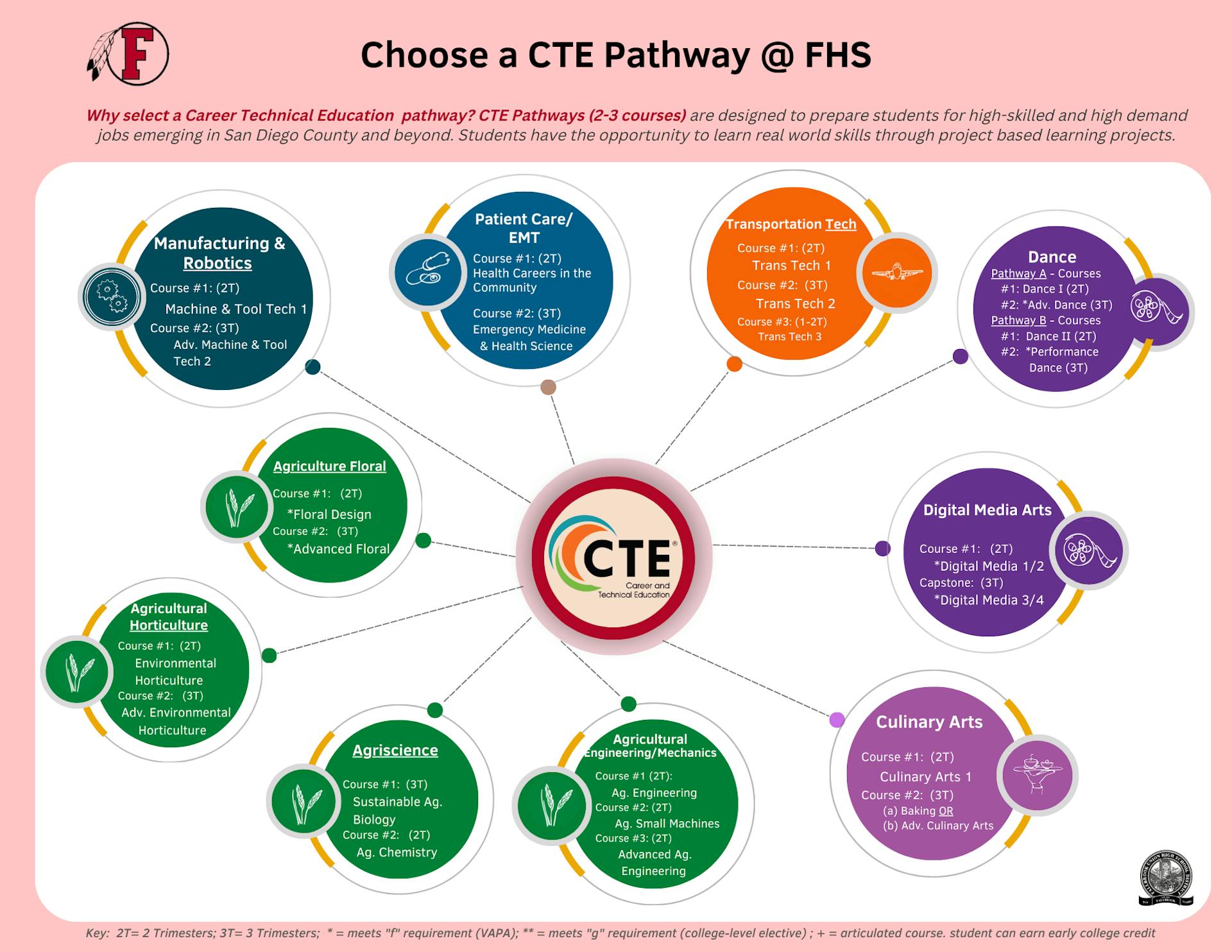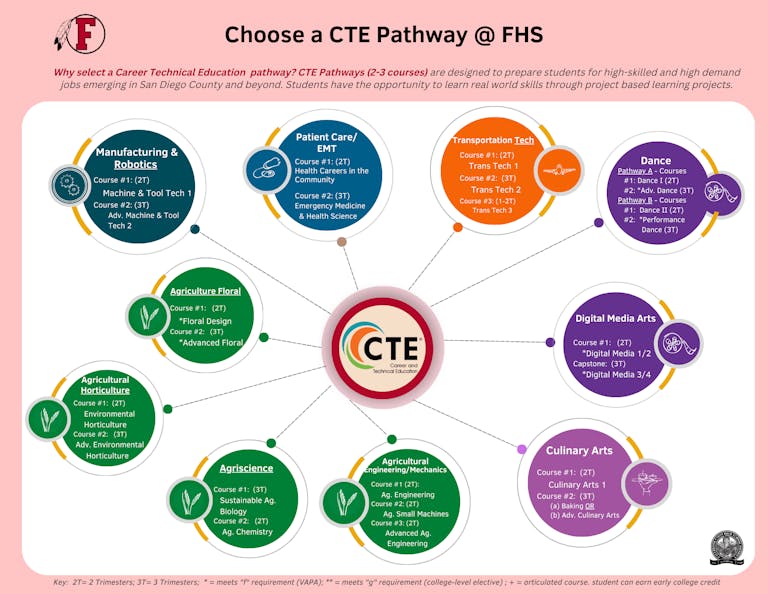Career Technical Education (CTE)
What is CTE?
Career Technical Education pathways provide ALL students the opportunity to explore their interest and passion toward a Future Career Pathway. Whether a student decides to attend a trade school, apprenticeship program, 2year community college, or 4-year college/university, CTE pathways can equip them with the tools needed to succeed in their future.
Students who select to participate in our CTE Program are required to complete 2 Courses for the selected CTE Pathway (exception: Ag. Engineering/Mechanics). CTE completers are eligible for a Graduation Cord if they complete a Sector Pathway with a C- or better.




